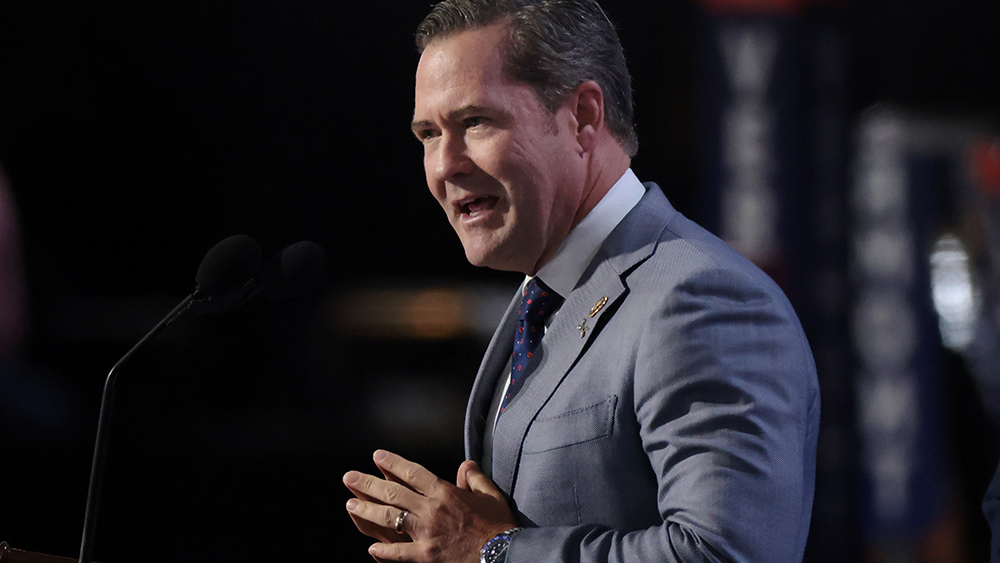 Parler
Parler Gab
Gab
- The Trump administration formally shut down the Office of the Special Presidential Envoy for Climate (led by John Kerry under Biden) in April 2025, ending a $17M/year operation. The move aligns with Trump’s push to reduce bureaucracy, prioritize economic growth and roll back Biden-era climate policies.
- Secretary of State Marco Rubio called the office “bloated” and ideologically driven, framing its closure as part of a broader State Department overhaul. The administration criticized Kerry’s office for “radical green ideology” and removed climate-centric webpages, signaling a shift away from emissions-focused diplomacy.
- Kerry’s tenure faced backlash for alleged hypocrisy (e.g., private jet use), lack of transparency and perceived leniency toward China’s coal expansion. His office was accused of overreach, including pressuring Western nations on fossil fuels while consulting far-left groups.
- The closure reflects broader swings in U.S. climate policy, including Trump’s 2025 Paris Agreement withdrawal (reversing Biden’s 2021 reentry). Critics argue that inconsistency harms global credibility, while supporters claim that prioritizing energy affordability benefits American workers.
- The move reinforces Trump’s “America First” energy policy, emphasizing deregulation and domestic industry over international climate pledges. Environmentalists view it as a major setback; conservatives see it as a rejection of bureaucratic excess. The long-term economic and environmental impacts remain debated.
The demise of a controversial office
The State Department confirmed the closure, with a senior official stating the office was “captured by ideology instead of common sense policy.” The department scrubbed its climate-related webpages shortly after the decision, signaling a sharp departure from policies prioritizing emissions reductions. Secretary of State Marco Rubio framed the move as part of broader streamlining efforts: “In its current form, the department is bloated, bureaucratic and unable to perform its essential diplomatic mission.” He added that the State Department had become “beholden to radical political ideology.” The office’s elimination aligns with Trump’s long-standing prioritization of U.S. energy dominance over international climate pledges. In early 2025, Rubio withdrew the U.S. from the Paris Climate Agreement—reversing Biden’s reentry—arguing it conflicted with American economic interests. A White House official reinforced the administration’s stance: “The Trump Administration is focused on reducing the everyday cost of living for the American worker, not apologizing to foreign governments for unleashing America’s energy dominance.”Kerry’s legacy: Diplomacy or overreach?
The Biden administration empowered Kerry with an unprecedented role—granting him Cabinet and National Security Council seats while tasking him with leading global climate negotiations. Kerry leveraged the position to push aggressive green policies, including a rapid shift from fossil fuels, and frequently targeted sectors like agriculture for contributing to emissions. But his tenure faced intense scrutiny:- Hypocrisy allegations: Kerry was criticized for extensive travel on private jets while advocating emission cuts. Reports also noted his office’s consultations with far-left environmental groups.
- China controversy: While pressuring Western nations to abandon coal, Kerry drew backlash for not confronting China’s expanding coal-fired power plants. The House Oversight Committee launched an investigation into his dealings with Beijing in 2023.
- Lack of transparency: The office resisted disclosing details of its operations, frustrating watchdogs and lawmakers.
Climate policy’s tumultuous path
The closure marks another swing in the pendulum of U.S. climate policy. The U.S. has vacillated on environmental commitments since the 1990s, with Republicans typically opposing global agreements seen as economically restrictive. Trump’s first term saw the U.S. exit the Paris Agreement; Biden rejoined it in 2021, only for Trump to withdraw again upon returning to office. Critics argue such inconsistency undermines American credibility abroad. Supporters, however, contend that prioritizing affordable energy and domestic industry benefits working-class Americans more than symbolic climate pledges.A return to “America First” energy policy
The shuttering of Kerry’s office signals a definitive end to an era of climate-centric diplomacy. For the Trump administration, the move underscores a commitment to deregulation and energy independence—cornerstones of its 2024 campaign. While environmental advocates lament the loss of a key policy arm, conservatives hail it as a rejection of bureaucratic excess and ideological activism. As Rubio reshapes the State Department, the debate continues: Should climate change be a pillar of foreign policy, or a secondary concern to economic growth? For now, the White House has chosen its answer. For energy freedom advocates, this is a victory. For climate activists, it’s a setback. And for the American public, the implications—both economic and environmental—will unfold in the years ahead. Sources for this article include: ClimateDepot.com FreeBeacon.com State.govU.S. job market surges past projections despite looming tariff uncertainty
By Willow Tohi // Share
Taxpayer dollars fund controversial NGO immigration programs amid trafficking allegations
By Willow Tohi // Share
Gaza-bound aid ship catches fire after alleged drone attack
By Laura Harris // Share
Trump taps Mike Waltz as next U.S. ambassador to the United Nations
By Laura Harris // Share
Mass protests erupt across China as Trump tariffs trigger economic crisis
By Laura Harris // Share
Governments continue to obscure COVID-19 vaccine data amid rising concerns over excess deaths
By patricklewis // Share
Tech giant Microsoft backs EXTINCTION with its support of carbon capture programs
By ramontomeydw // Share
Germany to resume arms exports to Israel despite repeated ceasefire violations
By isabelle // Share










